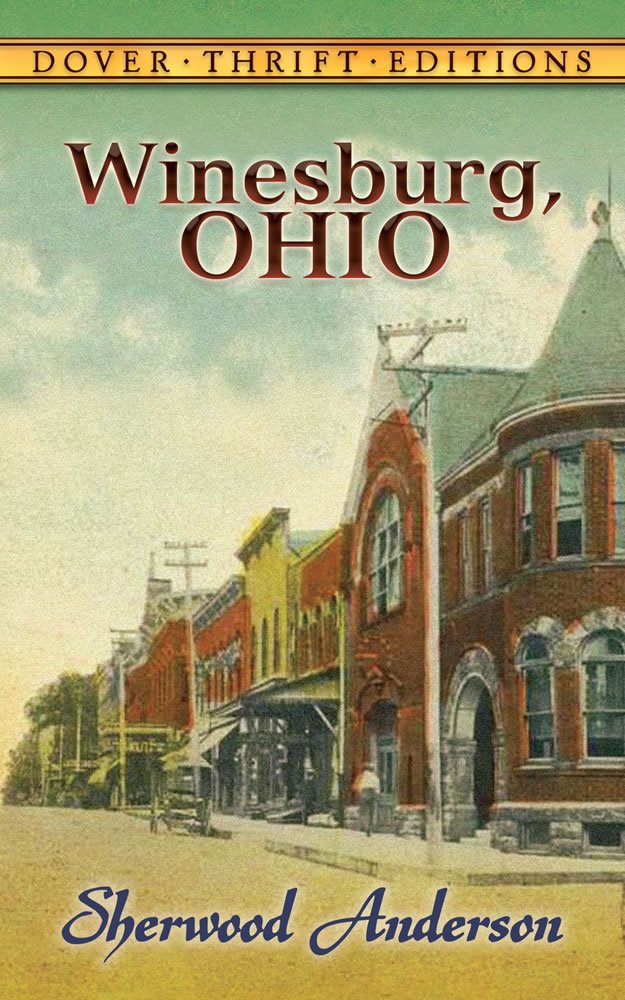Books |
Winesburg, Ohio
Sherwood Anderson
By
Published: Dec 09, 2014
Category:
Fiction
Guest Butler Thomas A. Stewart, executive director of the National Center for the Middle Market, has roots five generations deep in the black earth of Illinois, but grew up in Chicago’s suburbs, where he attended New Trier High School. (He now lives in New York.) Peggy Wingler (later Peggy Pink) grew up in the downstate town of Hillsboro. For years she returned there most weekends to visit her mother, often attracting the attention of a traffic cop with her flaming red sports car. Mrs. Wingler, who lived loud, died quietly in her sleep in 2002 at 85.
When I was young and easy under the apple tree — a junior in high school, to be exact — Peggy Wingler, one of the great English teachers of all time, assigned Sherwood Anderson’s “Sophistication” to us. This is the penultimate and climactic story in the collection of loosely linked tales called “Winesburg, Ohio.” I remember little of the story except loving it, and a passage about the young man and woman tumbling down a street like little animals. That passage is about 80 pages ahead of me as, for the first time, I am reading the whole book.
A few years ago our building set up a bookcase in the basement, a place for people to put books they no longer wanted for others to pick over before the trashman cometh, and there I found a wonderful old Dover Classics edition of “Winesburg Ohio,” along with a copy of O Pioneers! (Retail price for each: one dollar.) I read the Cather a couple of years ago. This week finally I tossed the Anderson in my briefcase to begin reading on some flights.
My God, it’s good! [To buy the $3.60 paperback from Amazon, click here. For the Kindle edition, click here. For the audio download, click here.]
Here’s a sample from the story I remember best:
There is a time in the life of every boy when he for the first time takes the backward view of life. Perhaps that is the moment when he crosses the line into manhood. The boy is walking through the street of his town. He is thinking of the future and of the figure he will cut in the world. Ambitions and regrets awake within him. Suddenly something happens; he stops under a tree and waits as for a voice calling his name. Ghosts of old things creep into his consciousness; the voices outside of himself whisper a message concerning the limitations of life. From being quite sure of himself and his future he becomes not at all sure. If he be an imaginative boy a door is torn open and for the first time he looks out upon the world, seeing, as though they marched in procession before him, the countless figures of men who before his time have come out of nothingness into the world, lived their lives and again disappeared into nothingness. The sadness of sophistication has come to the boy. With a little gasp he sees himself as merely a leaf blown by the wind through the streets of his village. He knows that in spite of all the stout talk of his fellows he must live and die in uncertainty, a thing blown by the winds, a thing destined like corn to wilt in the sun. He shivers and looks eagerly about. The eighteen years he has lived seem but a moment, a breathing space in the long march of humanity. Already he hears death calling. With all his heart he wants to come close to some other human, touch someone with his hands, be touched by the hand of another. If he prefers that the other be a woman, that is because he believes that a woman will be gentle, that she will understand. He wants, most of all, understanding.
This is the overcoat out of which come at least two Nobelists — Ernest Hemingway and Alice Munro — and not a little of what we came to know as The New Yorker style. Slight tales, characters come at from odd angles, an unforgettable portrait of plain looking people in faded print dresses under which flow intense, sometimes crazed passions, fervors religious and sexual, ambitions blooming and stunted, of a way of life being devoured by industrialization, of Isaacs psychologically sacrificed and Ruths stuck amid alien corn or among alien townsfolk.
The book was published in 1919, the year my father was born, and its American prose feels slightly, wonderfully antique: like a man wearing a hat to church on Sunday.
Find it. Read it. It’s just wonderful, an insufficiently remembered masterpiece of American literature.


